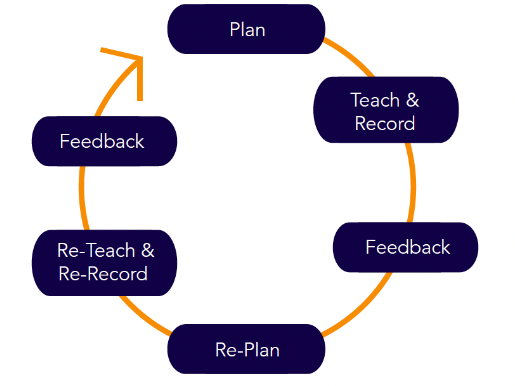The term “school culture” has been around for quite some time and refers to the way a school generally feels and works. This is typically determined by the beliefs and values specific to the school itself, as well as how those beliefs and values manifest in the actions or behaviors of stakeholders.
A strong school culture can be described in many ways but often has some key characteristics.
| “In a strong culture, there are many, overlapping, and cohesive interactions among all members of the organization.” (Shafer, 2018) |
| The same article goes on to say that leaders communicate directly with students, school staff, teachers, families, specialists, other stakeholders, and each other to reinforce messages about beliefs, values, and actions, and traits like collaboration, honesty, and hard work. (Shafer, 2018) |
| “A strong and positive school culture is characterized by a clear sense of direction and shared accountability to advance a vision for success, which shapes how teachers and leaders do their jobs. It is built on mutual respect and trust, which are the foundation of learning communities.” (Thomas B. Fordham Institute, 2021) |
There are several benefits to a strong school culture, but student achievement and teacher retention are two of the most important.
| “Student achievement increases substantially in schools with collaborative work cultures fostering a professional learning community among teachers and others, focus continuously on improving instructional practice in light of student performance data, and link to standards and staff development support.” (Valentine, 2006) |
| “Review of an extensive body of research on teacher attrition shows that teachers prefer to work in environments that not only provide necessary leadership support and resources for teaching and learning but also improve collegial collaboration and encourage change and continuous improvement.” (Digital Promise, n.d.) |
Planning and implementing initiatives to separately address each of these characteristics of a positive school culture would be overwhelming. Many educators and administrators are already facing platform fatigue, competing priorities, and next-level burnout. Fortunately, there is a professional learning solution that reinforces the fundamental traits of a positive school culture. It’s video coaching.
Video coaching is similar to microteaching which is the video recording of a lesson with a debriefing. Microteaching has been shown, through John Hattie’s work, to have double the effect size (.88) of other helpful practices. (Waack, 2015) The use of video as part of professional learning enables educators to understand what effective instruction looks like, and then see themselves mastering it. This boost to self-esteem and self-actualization can have a powerful impact on culture.
By enhancing instruction through gradual improvements, offering targeted feedback, and providing focused support, video coaching offers teachers and leaders the opportunity to influence school culture by cultivating the following practices.
- Collaboration: Teachers and leaders collaborate more effectively in and out of professional learning communities (PLCs).
- Example: A teacher uploads a video and shares it with a peer requesting new ideas, methods, or strategies to improve learner engagement.
- Sharing: Teachers and leaders share effective techniques.
- Example: An instructional coach time-stamps and annotates a teacher-submitted video to identify the use of a best practice and/or provide recommendations specific to the video’s context/content.
- Supporting Each Other: Teachers and leaders receive peer feedback and support.
- Example: An instructional coach records a coaching session and reviews it with another instructional coach to find new ways to offer feedback and suggestions to teachers.
- Continuous Improvement: Teachers and leaders focus on the continuous improvement of instructional practices.
- Example: A teacher recognizes incremental improvements driving toward a significant instructional goal.

- Reinforcement: Teachers and leaders have access to exemplar videos for further reinforcement of learned effective professional practices.
- Example: An instructional leader tags a video uploaded by a teacher to the district’s instructional framework.
- Conversing Intentionally: Teachers and leaders interact in an intentional way to ensure overlapping and cohesive conversations.
- Example: A district leader includes video coaching within a strategic plan to ensure aligned conversations among and between teachers, building leaders, district leaders, instructional leaders, and other stakeholders.
- Personalizing Feedback: Teachers and leaders give and receive personalized support and feedback within subject-specific teams.
- Example: A new history teacher shares a video with an experienced history teacher for guidance and mentorship.
- Developing Shared Understandings: Teachers and leaders develop a shared understanding of high-quality instruction at the building and district levels.
- Example: Leaders engage in professional learning around calibration to give framework-aligned feedback teachers need and create a common language between observers, leaders, and teachers to reinforce key messages.
Leaders can promote and maintain a positive school culture through the use of video coaching. When video coaching is further embedded into a school’s beliefs, values, actions, and behaviors, the impact can be focused, far-reaching, and highly impactful.
Looking for additional resources on video coaching to improve school culture?
- Download Coaching Considerations When Using Video or Microteaching — Video Coaching Implementation Plan.
- Check out Teaching Channel’s EMPOWER Platform which brings professional learning and support for educators to one place, with exemplar videos, reflection, collaboration, instructional coaching tools, data, and reports.
- Register for PD107: Coaching Teachers for Continuous Growth Using Video.
About the Author

Keely Keller is the Director of Professional Programs at Teaching Channel’s parent company, K12 Coalition. She holds a B.S. in Special Education from St. Cloud State University and an M.A. in Education from Hamline University. Keely is certified in three special education categories and holds both a Director of Special Education and a Principal License. Throughout her teaching career, Keely served students with special needs and subsequently served as a Special Education Coordinator in a suburban Minnesota school district. She has also taught as an adjunct professor at St. Mary’s University of Minnesota.
Fun Fact: Keely loves to go camping in her travel trailer with family and friends!






